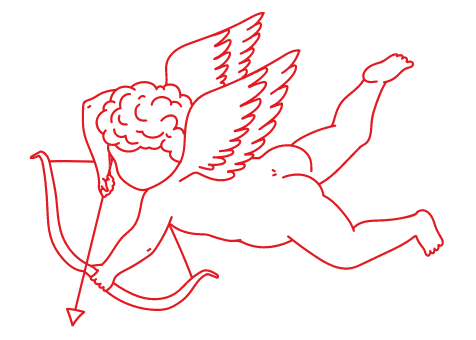I Wanna Rock and Roll All Night (Well, Till Like 10pm)
Part 2: I spent two weeks on the road with a rock band
I left some of you on the dancefloor of a family activity park, belting out karaoke renditions of "Sweet Caroline" and "Dancing on the Ceiling." If you're just joining now, though, you might want to start with the first half of the story.
We woke up the next morning having slept surprisingly well, considering we were in bunk beds better suited for kids under thirteen.
Check-out was earlier than we would have liked, but by this point, we were used to hitting the road early. We desperately wanted showers—our hair still reeked of the campfire we'd danced around the night before—but this being a campsite, amenities were limited. There were no towels. Some of us had packed microfibre towels, but those who hadn't were stuck drying off with a hairdryer.
Touring has its ups and downs. The campsite situation wasn't ideal, but our bassist surprised us with fresh lattes from the café downstairs, and I could have cried at the kindness of it.
By now, we were eight days into the tour and fully settled into tour life.
Getting ready in the back of a van and doing vocal warm-ups in bathrooms had become our new normal. We knew the M5 like the back of our hand, and walking into a Wetherspoons felt like coming home after a long, hard day’s work.
From the leafy forests of Hampshire, we headed north to Burnley. This would be our base for the next five days, thanks to the generous hospitality of a woman named Christina, who became our fairy godmother and firm friend by the end of our stay.
The five words every Brit wants to hear when walking through someone’s front door are, “Do you want a brew?” Christina delivered that regularly, along with home-cooked meals and late-night chats.
It felt like arriving at a five-star hotel.
Using her house as a base, we traversed counties.
First stop: Manchester. We headed to The Whisky Jar, one of the best live music spots in the city. Their open mic nights are legendary, and Joe, who runs the show, is comically and musically prodigious in equal measures.
The next night, the band scored a support slot, opening for fellow Aussie bands The Rions and Pacific Avenue at The Cluny, a small venue in Newcastle’s arty Ouseburn Valley.
Then it was on to Leeds, where we played The Grove Inn—a local institution and folk music champion dating back to 1832. Surrounded by towering high-rises, the pub refused a payout from developers, earning a loyal crowd that rallies around its "power to the people" spirit.
Our final stop was Derbyshire, where we performed at two intimate music venues nestled in the rolling hills of the Peak District. At The Barley Mow, the landlord and lady fed and watered us like family, and the pub-goers sang and danced along to every song they could.
After six days up north, we were racking up the miles—but the views were spectacular everywhere we went.
As we headed north, the views changed, and so did the venues and crowds. We managed to secure better fees for the band, and the passion for live music was undeniable—people bought merch and returned a year later, proudly wearing T-shirts from the 2023 tour.
Moving from city to city, I couldn’t help but reflect on how essential these grassroots venues are. But the troubling reality is that many are on the brink of collapse. In 2023 alone, 125 UK venues abandoned live music, and over half shut entirely.
Without these venues—and, crucially, their audiences—we wouldn’t have Oasis, David Bowie, or The Beatles.
And what kind of world would that be?
Touring didn’t just give me a deeper appreciation for live music; it made me ask myself: how can I better support it?
Since I was 13, the importance of live music was ingrained in me. On weekends and holidays, my dad would take me to see shows, from local gigs to stadium concerts.
When I lived in London, I used apps like DICE to find live music—often free or for a reasonable price. Sofar Sounds was another great way to discover new bands, but these days, I keep tabs on Spotify to see when and where my favourite artists are playing next.
Spotify, however, is not the platform we should be supporting musicians through. You may have heard Snoop Dogg revealing the shocking amount he earns in royalties from the giant streaming site—an astonishing $45,000 per billion streams.
Yup.
So here’s my challenge to you: go out and find live music. Whether it’s local or big, it doesn’t matter. Show up, pay the entry fee, toss a few pounds into their hat, and buy some merch. Follow the band on Spotify and Instagram, and spread the word—you can start with the band featured here: Square Dance Caller.
Because if we want to witness the rise of the next Oasis, the next Bowie, the next generation-defining sound, we all need to play our part.









